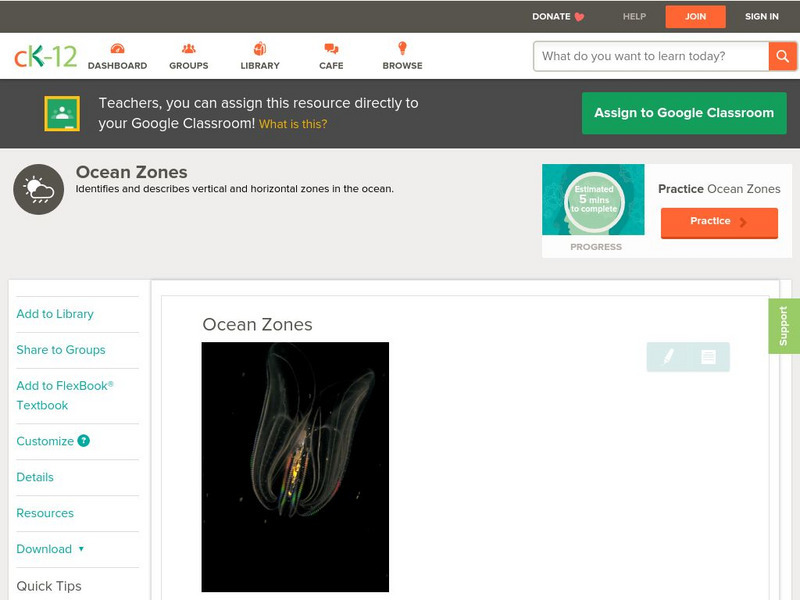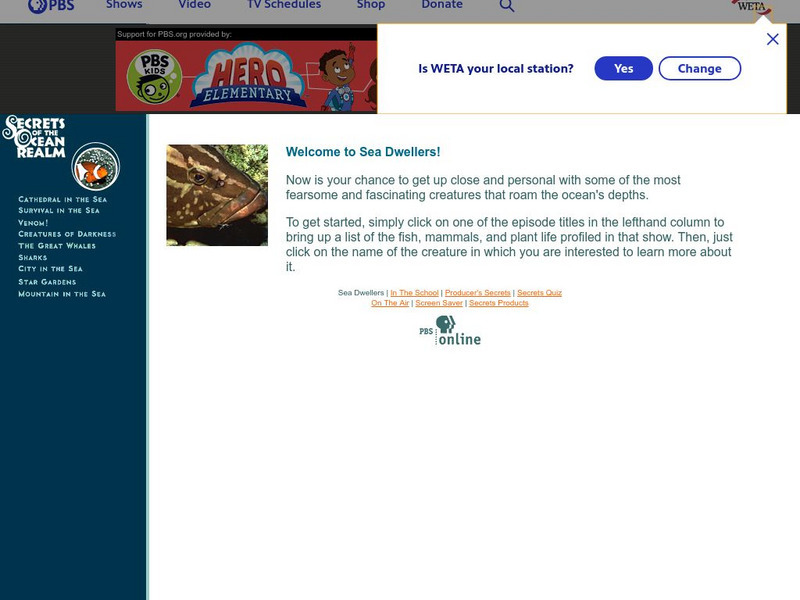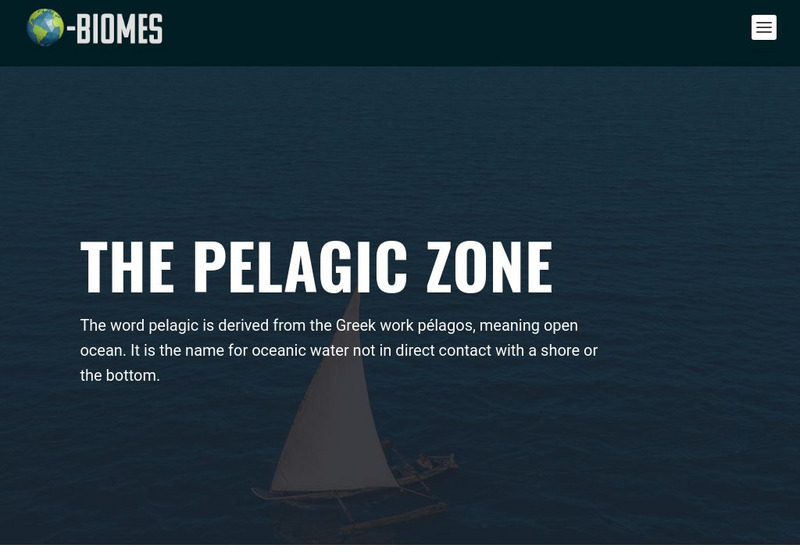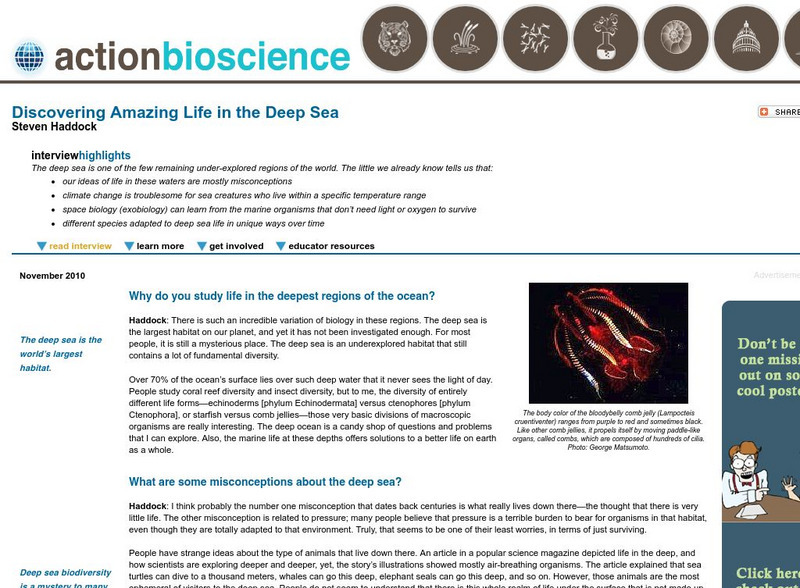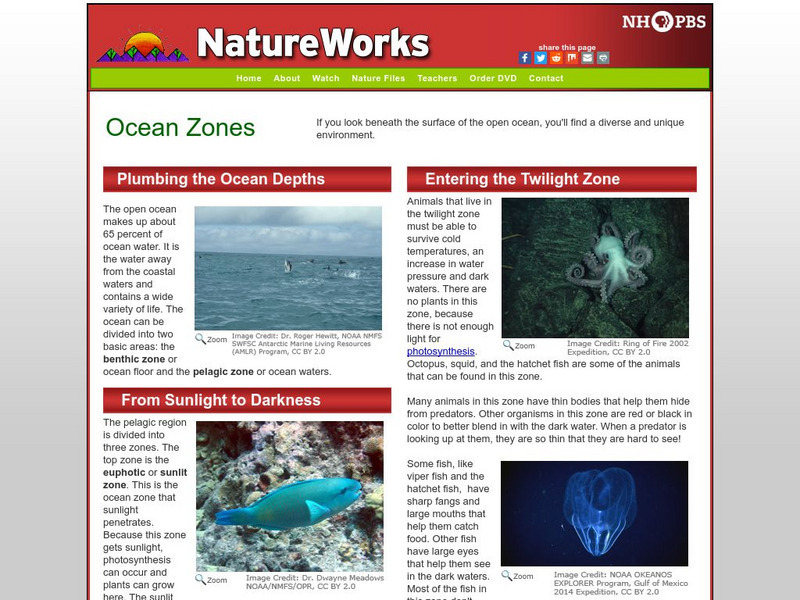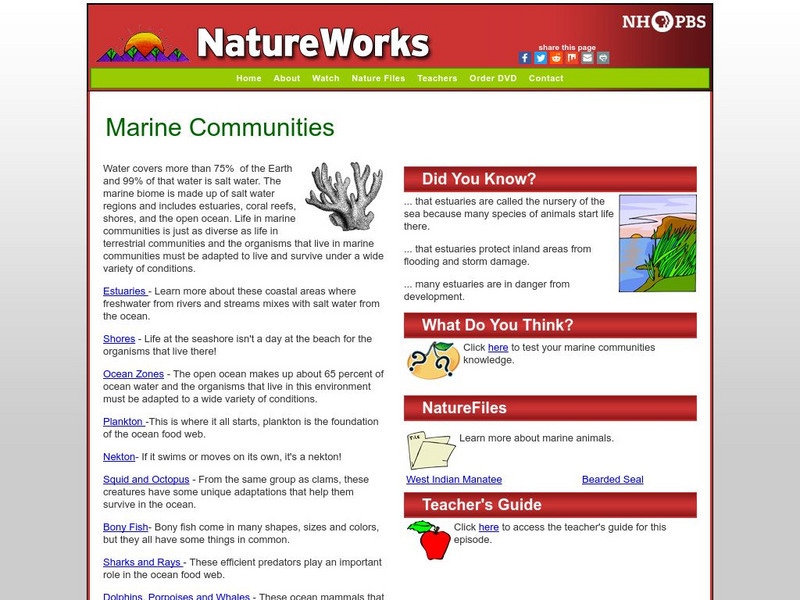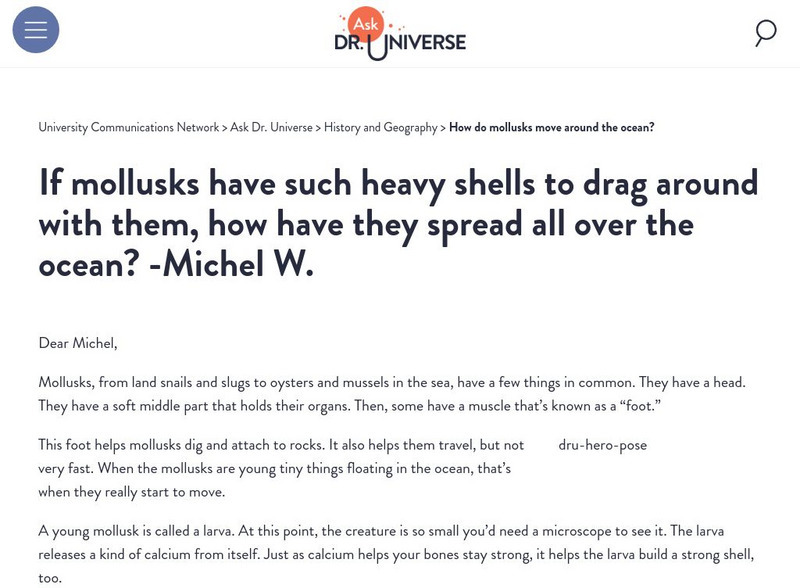Morning Earth
Biosphere as Place: Ocean: Benthic Biomes Two
study the Biology concept of ecosystems. The marine ecosystem tutorial comprises of definitions, pictures, and examples of an assortment of ocean benthic biomes.
CK-12 Foundation
Ck 12: Earth Science: Ocean Zones
[Free Registration/Login may be required to access all resource tools.] Describes the different zones of the ocean.
CK-12 Foundation
Ck 12: Earth Science: Ocean Zones
[Free Registration/Login may be required to access all resource tools.] Describes the different zones of the ocean.
Discovery Education
Discovery Education: Planet Ocean: The Ocean
This site is a one-page introduction to oceans. It provides a basic overview of Ocean life, size, and benefits.
MarineBio Conservation Society
Marine Bio: Ocean Sunfishes
Illustrated reference guide features useful information on ocean sunfishes with facts on physical characteristics, behavior, range, habitat, diet, and conservation status.
The Wild Classroom
The Wild Classroom: Biomes of the World: Oceanic Pelagic Biome
Learn about the oceanic pelagic ecosystem. Find out about plants, animals, adaptations, and conservation efforts.
American Institute of Biological Sciences
Action Bioscience: Discovering Amazing Life in the Deep Sea
A research biologist at the Monterey Aquarium and a professor at UC-Santa Cruz is interviewed to explain the studies done in the deep sea. Steven Haddock addresses the purpose of uncovering the mysteries of life and environment lying out...
Nature Conservancy
The Nature Conservancy: Coral Reefs of Palau: Nature's Amazing Underwater Cities
This lesson takes students on a virtual field trip to the coral reefs of Palau where they will explore amazing underwater cities found near a remote network of islands in the Pacific Ocean. Learn all about an ecosystem of symbiosis....
Unite for Literacy
Unite for Literacy: Animals: Ocean Beasties
See some of the amazing animals that live in the ocean. Each page has one animal name and a photograph. Includes audio narration in English and Turkish with text in English.
NOAA
Noaa: Ocean Diversity Challenge [Pdf]
Read descriptions of organisms that live in the ocean. Locate the organisms on a poster based on their description.
Society for Science and the Public
Science News for Students: Motion in the Ocean
This article reports on recent research that explains why corals are in nearly constant motion. Includes a brief video. [0:16]
NOAA
Noaa: The Ocean Drugstore [Pdf]
Learn how organisms living in the oceans may help people cure diseases. Create a poster to display what you learn.
Other
Rutgers: c.o.o.l. Class: Physics Project: Plankton and Ocean Current
This c.o.o.l. Project focuses on tiny sea plankton and how they move in the oceans. Follow the scientific process outlined on the left, calculate and collect data to form your own predictions.
PBS
Nh Pbs: Nature Works: Ocean Zones
Discover more about the underocean environment at this site that surveys animals, environmental factors such as light and temperature, currents, animals, plants, and the like.
Other
College of Exploration: Ocean Literacy [Pdf]
A guide to help educators become ocean literate. The goal is to redress the lack of ocean-related content in state and national science education standards, instructional materials, and assessments. PDF (requires Adobe Reader).
CK-12 Foundation
Ck 12: Earth Science: Ocean Ecosystems Study Guide
[Free Registration/Login may be required to access all resource tools.] This study guide summarizes key points about ocean ecosystems. Includes a few questions to check for understanding.
Smithsonian Institution
National Museum of Natural History: Ocean Portal: Corals and Coral Reefs
Learn about corals and the importance of coral reefs to ocean ecosystems. Find out how reefs are created, what threats they face, and what kinds of conservation tactics are being used to protect and preserve them.
NOAA
Noaa: National Marine Sanctuaries: Uss Alligator
A website dedicated to the engineering marvel, USS Alligator. Read a history and find blueprints of this innovative submarine. Use the topics on the left to navigate the site. From the National Oceanic and Atmospheric Administration.
NOAA
Noaa: Who Trashed the Ocean? [Pdf]
Clean up your understanding regarding the effects of polluting the oceans. Create a poster to share your knowledge.
Sophia Learning
Sophia: Oceans
An audio podcast highlighting the numerous marine ecosystems in the oceans. [1:50]
PBS
Nh Pbs: Nature Works: Marine Communities
Explore saltwater ecosystems around Earth. Learn about oceans, estuaries, shores, and more.
Science Education Resource Center at Carleton College
Serc: Inquiry Into High Resolution Ice Core and Marine Sediment Records
Activity in which questions are provided relating to interpreting paleoclimate data such as characteristics that make sites favorable for paleoclimate records, locating sites using a map, finding patterns and correlations in the data,...
Washington State University
Washington State University: Ask Dr. Universe: How Do Mollusks Move Around the Ocean?
Dr. Universe went to a friend who is a marine biologist to find the answer to this probing question by Michel. Find out all about mollusks.




